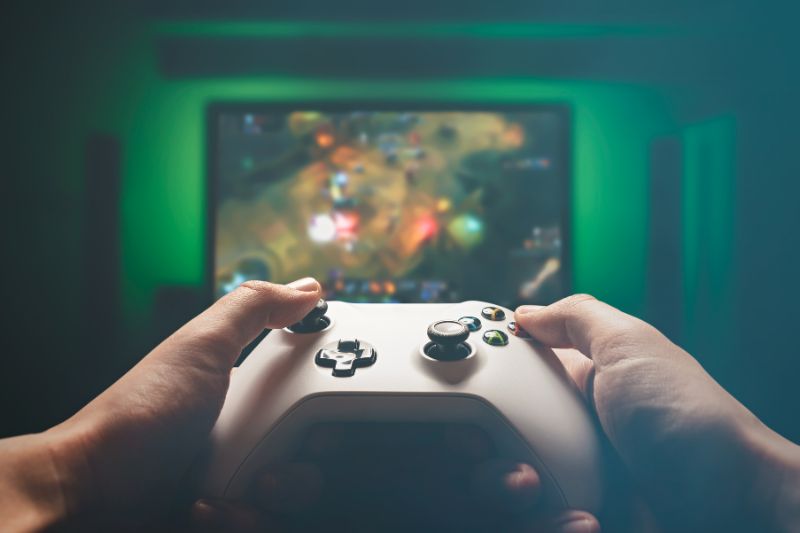Ask Dr. Saline: Teen boys with ADHD, Anxiety, and Depression
 Recently I’ve received several questions about how to care for teen boys with ADHD, anxiety, and depression. So rather than answer one reader question this week, I’ll respond to everyone who has written to me with questions about helping their teenage sons. Sign-up for my newsletter + Free Handout | Ask Dr. Saline
Recently I’ve received several questions about how to care for teen boys with ADHD, anxiety, and depression. So rather than answer one reader question this week, I’ll respond to everyone who has written to me with questions about helping their teenage sons. Sign-up for my newsletter + Free Handout | Ask Dr. Saline
From Dr. Saline
The teenage years can be stormy, especially for boys with ADHD. Teen boys, in particular, often struggle with fitting in, managing both verbal and emotional impulsively, and carving out a space for themselves to practice connected independence. All periods of developmental transitions have their ups and downs, but ADHD tends to introduce more intense levels of moodiness, anxiety, and opposition in both boys and girls. If moods, anxiety, and low self-esteem are left unchecked, many teens with ADHD can develop depression. That’s why it’s so important for parents and caretakers to keep a watchful eye on their kids, noticing sadness, worrying, or social isolation. Sadly, all too often, boys will hide their true feelings until the tension builds up so much that there’s an explosion of words or actions that they later regret. Caring parents can offer them alternatives that foster self-control and confidence by providing conversation, connection, and support opportunities.
ADHD, Anxiety, and Depression
 While ADHD and anxiety are two different conditions, they frequently coexist in kids and teens– about 30% of the time. Just like ADHD, anxiety manifests itself differently in different people. Generalized anxiety, phobias, panic attacks, and social anxiety are just a few of the more common types of anxiety seen in teen boys. Most importantly, anxiety can lead to depression if left untreated. Pay attention to your child’s behaviors, words, or symptoms. As needed, seek help from your primary care provider, school counselor, current therapist, or coach.
While ADHD and anxiety are two different conditions, they frequently coexist in kids and teens– about 30% of the time. Just like ADHD, anxiety manifests itself differently in different people. Generalized anxiety, phobias, panic attacks, and social anxiety are just a few of the more common types of anxiety seen in teen boys. Most importantly, anxiety can lead to depression if left untreated. Pay attention to your child’s behaviors, words, or symptoms. As needed, seek help from your primary care provider, school counselor, current therapist, or coach.
What’s Behind Gaming
 Many parents I speak with vent their frustrations at how much time their sons with ADHD spend on video games. Gaming is less about laziness and more about socializing and a sense of accomplishment. Boys with ADHD often have difficulties with face-to-face social interactions. They may feel uncomfortable maintaining a conversation or relating to people. But they still want and need to find a social outlet, which is what gaming provides. Whether they play group or cooperative games online or play independently, gaming provides opportunities for connection and collaboration in a safe and comfortable environment. Gaming also provides boys with ADHD a sense of accomplishment they may not be able to find in school or at home. If they can beat a competitor, unlock a new level, or win prizes, it gives kids a huge sense of achieving something. When we view gaming through a more compassionate lens, we begin to understand more deeply what it is that boys with ADHD need to feel good about themselves. The issue with gaming, as with any screen usage, is the amount of time your child spends on it to the exclusion of other activities. Gaming works best as one part of a balanced life diet–not the main course. Eating, sleeping, using the bathroom, playing sports, participating in the school musical, and hanging out with friends in real time are all equally important in developing a healthy sense of self-worth and engagement in the world. ` That said, monitoring gaming to ensure your teen is safe and responsible online is important. And if gaming is still taking up a disproportionate amount of time by your standards, work on setting limits and redirecting your child toward alternative activities, providing a similar sense of acceptance and accomplishment.
Many parents I speak with vent their frustrations at how much time their sons with ADHD spend on video games. Gaming is less about laziness and more about socializing and a sense of accomplishment. Boys with ADHD often have difficulties with face-to-face social interactions. They may feel uncomfortable maintaining a conversation or relating to people. But they still want and need to find a social outlet, which is what gaming provides. Whether they play group or cooperative games online or play independently, gaming provides opportunities for connection and collaboration in a safe and comfortable environment. Gaming also provides boys with ADHD a sense of accomplishment they may not be able to find in school or at home. If they can beat a competitor, unlock a new level, or win prizes, it gives kids a huge sense of achieving something. When we view gaming through a more compassionate lens, we begin to understand more deeply what it is that boys with ADHD need to feel good about themselves. The issue with gaming, as with any screen usage, is the amount of time your child spends on it to the exclusion of other activities. Gaming works best as one part of a balanced life diet–not the main course. Eating, sleeping, using the bathroom, playing sports, participating in the school musical, and hanging out with friends in real time are all equally important in developing a healthy sense of self-worth and engagement in the world. ` That said, monitoring gaming to ensure your teen is safe and responsible online is important. And if gaming is still taking up a disproportionate amount of time by your standards, work on setting limits and redirecting your child toward alternative activities, providing a similar sense of acceptance and accomplishment.
Set Reasonable Limits
If you feel your teenager is spending too much time on gaming or social media, it’s time to set some reasonable limits together. First, discuss your goals with your parenting partner (if you have one). Consider factors like what’s appropriate on school nights vs. weekends, what needs to be completed before gaming, and how to help your son self-monitor with alarms and other reminders.  Set aside a calm moment to discuss gaming limits with your teen. In the spirit of collaboration, ask him first about his gaming and overall screen use observations, seeking his perceptions of what’s working and what isn’t. Then explain some of your ideas about why some limits are necessary and ask for his input. He’ll be more likely to comply if he’s part of the process. Clarify that want-to’s (like screen-time) can be earned after the have-to’s (like homework and chores) are finished. Consider ways in which your son can earn extra time on his devices to give him a little extra motivation to take care of his responsibilities. When limiting one activity, provide some other options to redirect and give your teen something else to do and look forward to. “Go read a book” will probably not be a welcomed solution. But taking the dog for a walk, going for a bike ride with you, or going out for ice cream with a friend may be more interesting. You know your child best, so propose something that will spark his interest and foster connections with the people in his life.
Set aside a calm moment to discuss gaming limits with your teen. In the spirit of collaboration, ask him first about his gaming and overall screen use observations, seeking his perceptions of what’s working and what isn’t. Then explain some of your ideas about why some limits are necessary and ask for his input. He’ll be more likely to comply if he’s part of the process. Clarify that want-to’s (like screen-time) can be earned after the have-to’s (like homework and chores) are finished. Consider ways in which your son can earn extra time on his devices to give him a little extra motivation to take care of his responsibilities. When limiting one activity, provide some other options to redirect and give your teen something else to do and look forward to. “Go read a book” will probably not be a welcomed solution. But taking the dog for a walk, going for a bike ride with you, or going out for ice cream with a friend may be more interesting. You know your child best, so propose something that will spark his interest and foster connections with the people in his life.
Manage Teenage Meltdowns with Grace
 Meltdowns are a fact of life for most teens, especially those living with ADHD. Stress, frustration, and anxiety can escalate quickly and take a while to settle. When you see a storm on the horizon, the first step is for you, as the parent, to stay calm by slowing down your reactivity. If you need to take a moment in a different room, then step out and do what you can to gather yourself. You will be more likely to manage a meltdown with grace this way. Next, try to understand what’s behind your teenager’s tantrum. When kids, especially boys with ADHD, are overwhelmed by big feelings, it’s tough for them to articulate what they need. Meltdown mode is a direct expression of their raw feelings. It’s a signal to you that things are not okay with them. Resist reacting and choose to respond using observations (“It seems like you are really upset right now. Let’s take a break to settle and come back in 15 minutes.”) Wonder to yourself if they might be hungry or tired and offer them a chance to eat something and chill out for a bit. Then you can circle back to dealing with more complex issues like getting a bad grade or being left out of an activity. Do your best to remain compassionate and clear when your son acts out. He’s just trying to express his distress to you so you become upset, and then he’s free and clear. It’s an import/export business. If you don’t take on his rage by engaging with him, then he’s learning slowly by slowly to manage it himself. It’s a tall order, but it will help both of you weather the storm.
Meltdowns are a fact of life for most teens, especially those living with ADHD. Stress, frustration, and anxiety can escalate quickly and take a while to settle. When you see a storm on the horizon, the first step is for you, as the parent, to stay calm by slowing down your reactivity. If you need to take a moment in a different room, then step out and do what you can to gather yourself. You will be more likely to manage a meltdown with grace this way. Next, try to understand what’s behind your teenager’s tantrum. When kids, especially boys with ADHD, are overwhelmed by big feelings, it’s tough for them to articulate what they need. Meltdown mode is a direct expression of their raw feelings. It’s a signal to you that things are not okay with them. Resist reacting and choose to respond using observations (“It seems like you are really upset right now. Let’s take a break to settle and come back in 15 minutes.”) Wonder to yourself if they might be hungry or tired and offer them a chance to eat something and chill out for a bit. Then you can circle back to dealing with more complex issues like getting a bad grade or being left out of an activity. Do your best to remain compassionate and clear when your son acts out. He’s just trying to express his distress to you so you become upset, and then he’s free and clear. It’s an import/export business. If you don’t take on his rage by engaging with him, then he’s learning slowly by slowly to manage it himself. It’s a tall order, but it will help both of you weather the storm.
Offer Empathy and Support
Your child’s teen years are a time of major transitions (physically, socially, psychologically, and cognitively). With these changes come big emotions and, sometimes, great discomfort. Kids with ADHD have their fair share of challenges, and emotional dysregulation is a key part of the package. Instead of focusing on a problematic behavior, try to understand what’s behind it, what needs are going unmet, and how to offer support best. Thank you for your question! Be sure to join my upcoming webinars to learn more.
Want to ask Dr. Saline a question? Click Here
Become A Member
Please become a member of my newsletter community. You can find support and resources and connect with a group that understands your questions and needs. Click here Follow me on social media: YouTube, Facebook, Twitter, and Instagram. Invite Me to Speak | Join A Group | Newsletter | Read my blog
Sign-up for my newsletter today and receive 10% off!

